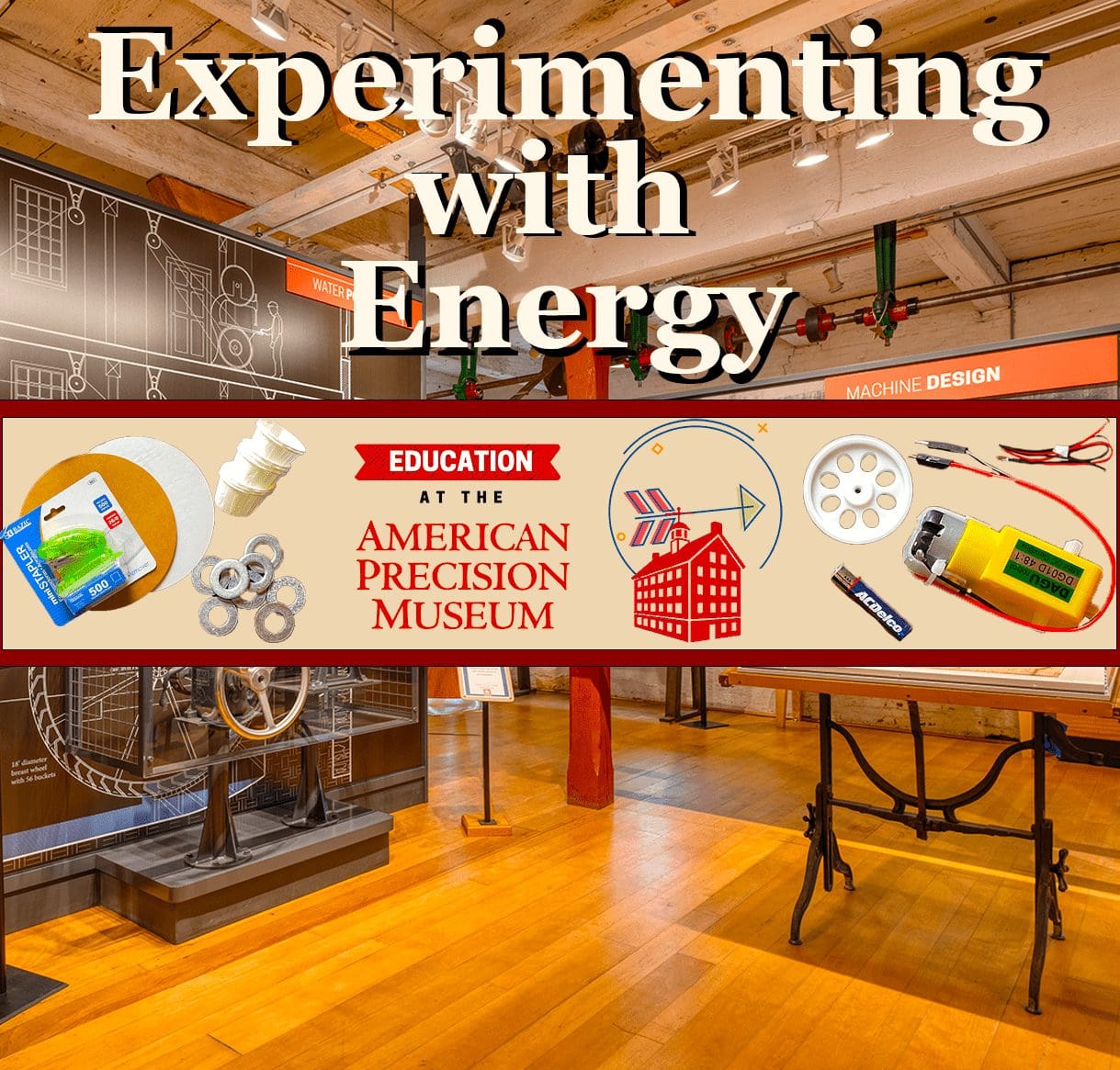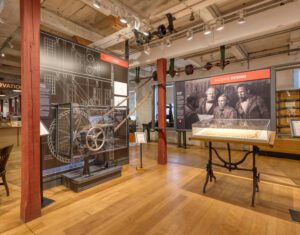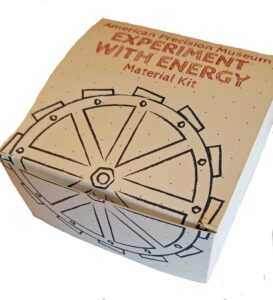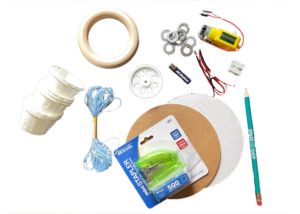Blog
Experimenting with Energy Kit

The American Precision Museum, in collaboration with SparkShop, has developed a series of free kits that give 4th- to 6th -grade students a hands-on introduction to Manufacturing, STEM, and Design. In addition to our curriculum on Experimenting with Energy, we currently have two other kits available, Achieving Repeatability, and Measure the World.
These lessons expose students to dynamic, engaging challenges designed to encourage critical thinking and translate to real-world problem-solving. Each curriculum begins with a brief history of local manufacturing before guiding students through small, achievable challenges that reinforce the kit’s central theme, such as building a catapult, designing tessellations, or constructing a water wheel.
The kits emphasize the importance of student innovation and creativity by encouraging participants to improve on their constructions and design some of their own. The curricula also encourage students to draw their own conclusions about the consequences of the activities. For example, the Achieving Repeatability kit asks participants to carefully consider the “best” way to draw a circle after they’ve assembled and tested six different methods. Finally, all the lessons conclude by tying the ideas introduced in the unit to real-world careers.
The kits and their accompanying curricula are designed to be easily adaptable to remote, in-person, and hybrid teaching environments, and they’re aligned with CCSS ELA Literacy and NGSS Physical Sciences. Because each lesson is divided into a series of approachable segments, the time required for each box is extremely flexible; curricula can be completed all at once or over the course of several sessions. All of the kits are completely free (while supplies last), thanks to generous grants.

Whats Included?
- A teacher guide that provides an overview of each unit, Cross-Content standards, and a sample agenda.
- Seven interdisciplinary units centered around repeatability.
| Topic | Subject | |
| Manufacturing in Vermont | History | |
| Energy Transfer | STEM | |
| Water Wheels | STEM | |
| Writing Science Fiction | Writing | |
| Simple Machines Dance | Physical Education | |
| Wind Chimes | Art | |
| Applications Engineer |
Career |
- One kit per student with all the physical materials necessary for the lesson.


- Two student surveys, to be taken before and after the activity, and one teacher survey to help us improve the program going forward.
- Free strategy meetings, custom curriculum materials for your class, and teaching assistance upon request.
Fill out this form to sign up for a set of free kits for your classroom. We just ask that you and your students fill out the 5 minute survey after teaching the kit. We can’t keep these kits free without feedback from the classrooms that use them.
If you have any questions, please send an email to mholleran@americanprecision.org.
Visit the Museum Behind the Kit
Housed in the original Robbins & Lawrence Armory since 1966 and designated a National Historic Landmark, APM holds the largest collection of historically-significant machine tools in the nation. The hands-on museum seeks to preserve the heritage of the mechanical arts, spark excitement about the power of STEM, and inspire the next generation of Engineers and Manufacturers. Our collection combines the historical, such as Bridgeport 001 and a 1907 Bentley Car Engine, and the modern, including a Haas DT-1 CNC Machining center and a Fanuc LR Mate 200 iD Articulated Arm Robot
The museum, in Windsor, VT, is open from 10-5 daily. For special events and more information on our offerings, click here.


stay up to date
Want more content from the American Precision Museum?
Sign up to receive news straight to your inbox!

